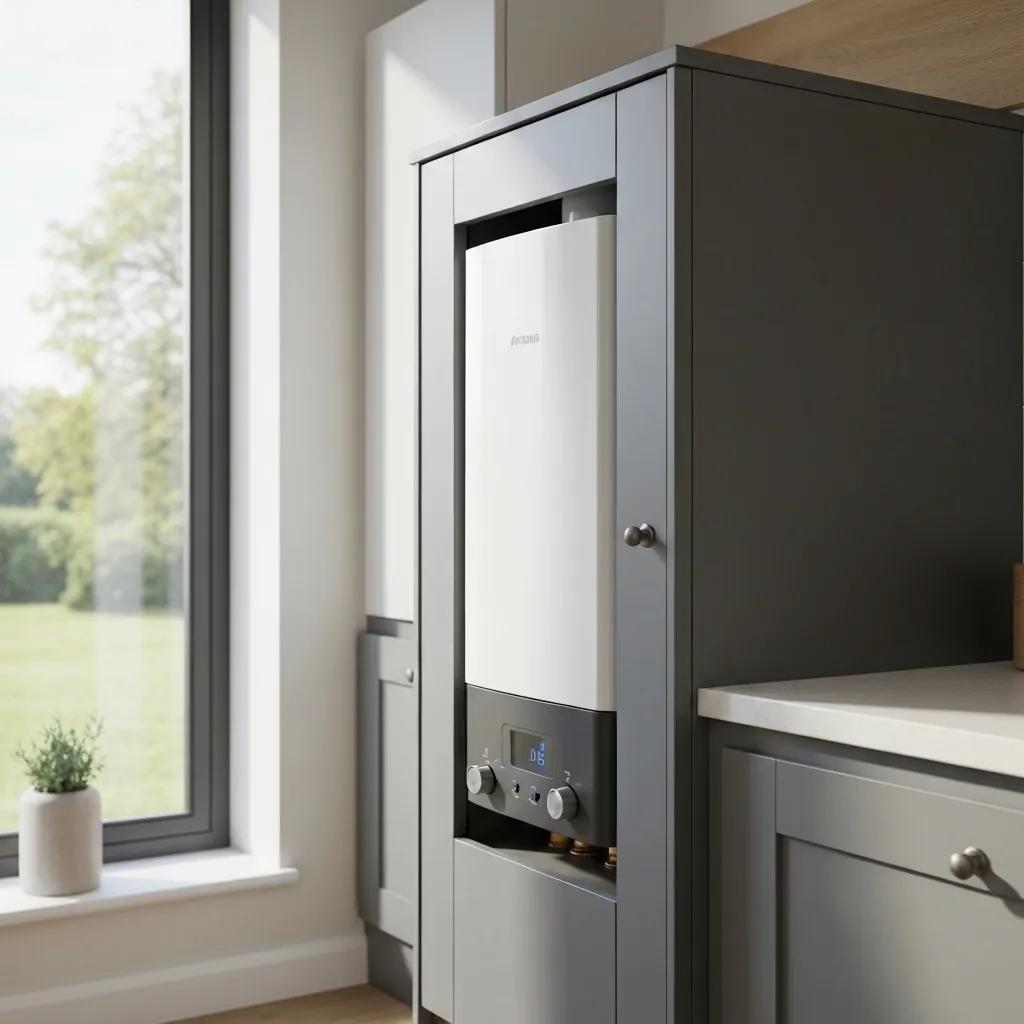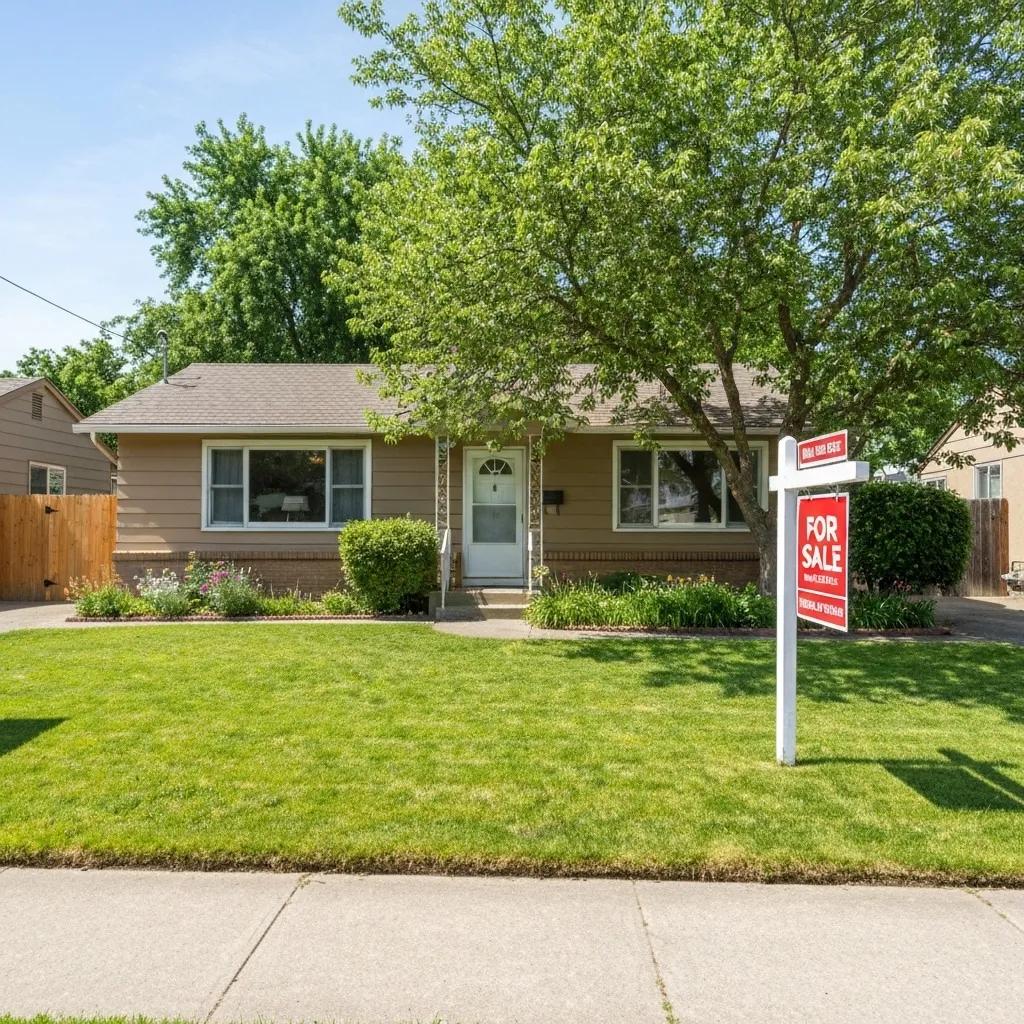
Unlock Your Home's Financial Potential: The Smart Case for a New Boiler
Upgrading to a modern boiler can trim your energy expenses by as much as 35% and potentially boost your home’s market value by 3–5%, presenting a sound financial move. Whether you’re engaging a certified gas engineer in Wigan or a trusted heating specialist, switching to an A-rated condensing boiler is a strategic response to escalating fuel prices. It allows you to manage replacement costs through flexible financing, all while making your property more attractive. This guide will walk you through how a new boiler significantly cuts energy bills, fits neatly into 0% APR and monthly payment plans, elevates your Energy Performance Certificate (EPC) score, reduces upkeep expenses, and even shrinks your carbon footprint—collectively strengthening your long-term financial health.
In the following sections, you’ll discover:
- How a new boiler drives down heating costs through superior efficiency and unwavering reliability.
- Which boiler finance options and government grants make upgrading accessible.
- The tangible ways an enhanced heating system elevates your home’s market value.
- The enduring savings derived from fewer repairs and robust warranty coverage.
- How eco-conscious features contribute to lower emissions and future cost benefits.
- Common queries homeowners have regarding boiler savings and property value.
- Practical tools and methods for calculating your personal return on investment.
Why a New Boiler Is a Smart Financial Investment for Your Home

A new A-rated condensing boiler boasts high combustion efficiency and advanced heat recovery, capable of reducing your heating bills by 20–35%. These modern units employ a secondary heat exchanger to capture latent heat from flue gases, transforming otherwise wasted warmth into usable hot water. This ingenious mechanism means less gas is consumed to achieve the same level of home comfort.
EON Next, Boiler efficiency guide | Boiler rating, (2025)
Understanding Energy Efficiency Ratings and Their Impact on Your Savings
Boiler efficiency is graded from G (least efficient) to A (most efficient), based on how effectively fuel energy is converted into heat. An A-rated model typically operates at 90–98% efficiency, whereas older G-rated units might perform below 70%. Higher efficiency ratings translate directly to more heat generated per unit of gas, leading to greater annual savings.
| Rating | Efficiency Percentage | Estimated Annual Savings (£) |
|---|---|---|
| A-rated | 92–98% | 450–580 |
| B-rated | 85–91% | 300–450 |
| C–D graded | 75–84% | 200–300 |
| G-rated |
Making the switch from a G-rated to an A-rated boiler can save households up to £580 annually. Grasping these efficiency ratings is key to selecting a boiler that maximizes your cost reductions.
Boiler Efficiency and Your Savings Potential
Modern A-rated condensing boilers achieve impressive 92–98% efficiency, unlocking significant annual savings on your energy bills. Upgrading from an older G-rated boiler to an A-rated model can put up to £580 back in your pocket each year.
How Condensing Boiler Technology Drives Down Heating Expenses
Condensing boilers harness extra heat via a secondary heat exchanger that captures latent heat from exhaust gases. This process lowers flue gas temperatures, enhances fuel utilization, and consequently reduces gas consumption. The direct outcome is lower monthly utility bills without compromising your home’s warmth.
BOXT, Boiler Efficiency Ratings: Everything You Need to Know, (2025)
The Power of Condensing Boiler Technology
Condensing boilers excel at recovering heat from flue gases, boosting efficiency and cutting down on gas usage. These advanced boilers can achieve over 90% energy efficiency.
What Level of Annual Savings Can You Realistically Expect from a New Boiler?
Most UK homeowners report annual savings ranging from £300 to £580 after replacing an old boiler with a new A-rated model. Condensing and combi boiler designs are engineered to minimize standby heat loss and optimize operating temperatures for consistent comfort. For instance, a typical semi-detached home with average usage might see its monthly heating bill reduced by approximately £45–£50.
How Do Reduced Maintenance and Repair Costs Contribute to Long-Term Financial Gains?
New boilers are equipped with corrosion-resistant components and intelligent self-diagnostic systems, significantly lowering the risk of breakdowns and the need for frequent service calls. Fewer repairs and less frequent part replacements translate into sustained savings over the boiler’s lifespan.
| Component | Typical Repair Cost (Older Boiler) | Typical Repair Cost (New Boiler) | Estimated Frequency (over 10 years) |
|---|---|---|---|
| Heat Exchanger | £300–£500 | £0–£100 (if under warranty) | 2–3 instances vs. 0–1 instance |
| Pump and Motor | £150–£250 | £50–£100 (parts only) | 3–4 instances vs. 1–2 instances |
| Control Board | £200–£350 | Covered by warranty | 1–2 instances vs. 0 instances |
Lower repair bills not only complement your immediate energy savings but also build cumulative financial benefits, easing your household budget and bolstering your long-term financial stability.
Exploring Flexible Finance Options to Make New Boiler Installation Affordable
Investing in a high-efficiency boiler doesn’t have to strain your finances. A variety of financing solutions are available to help you spread the replacement costs over manageable periods, aligning payments with your budget.
What Are the Advantages of 0% APR Boiler Finance in the UK?
Interest-free financing, typically available over 12–36 months, means your repayments directly cover the boiler’s cost without any additional interest charges. This allows you to preserve your energy bill savings while getting a new boiler installed immediately, without needing significant upfront capital. Many heating professionals and local boiler installers collaborate with lenders to offer straightforward 0% APR arrangements.
How Do Monthly Payment Plans Ease the Burden of Boiler Replacement Costs?
Monthly payment schemes break down the total cost into predictable installments, often structured to align with seasonal budgeting. These plans can conveniently include servicing and warranty packages, transforming a large, one-off expense into manageable monthly commitments that can be offset by your energy savings.
What Key Information Should You Know About Boiler Loans and Credit Options?
Boiler loans and credit agreements typically involve variable interest rates, potential deposit requirements, and credit assessments. While they may include finance charges, competitive lenders often provide low-interest terms that can still result in net savings when combined with reduced gas bills. It’s always advisable to compare loan APRs, term lengths, and total repayment amounts to secure the most financially advantageous option. visit jjk gas services for a free quote.
How Can You Access Government Boiler Grants and Support Schemes?
Government initiatives, such as the Boiler Upgrade Scheme, offer grants to help subsidize the cost of high-efficiency heating installations. To apply, homeowners usually need to provide an energy performance certificate, proof of ownership, and installer credentials to the designated scheme administrator.
What Are the Eligibility Requirements for the Boiler Upgrade Scheme and Other Grants?
- The property must be located in England or Wales, and homeowners must possess a valid Energy Performance Certificate (EPC).
- The new heating appliance must meet specific minimum efficiency and emission standards.
- Installations must be performed by accredited installers or Gas Safe registered engineers. Verify your Gas Safe registered engineer.
- Previous recipients of grants may face limitations on applying for subsequent grants.
VitoEnergy, How to Qualify and Apply for the Boiler Upgrade Scheme, (2024)
Understanding Boiler Upgrade Scheme Eligibility
The Boiler Upgrade Scheme offers grants for installing high-efficiency heating systems. To qualify, your property must be in England or Wales and have a current Energy Performance Certificate (EPC).
Meeting these criteria can unlock grants of up to £7,500 towards heat pumps or biomass boilers, and provide substantial contributions towards gas-fired condensing boiler upgrades.
How Installing a New Boiler Can Enhance Your Property's Value

A modern, efficient boiler not only improves a home’s energy rating but also makes it more appealing to potential buyers, contributing to a better Energy Performance Certificate (EPC) score. This investment often translates directly into a higher market value for your property.
iHeat, Can A New Boiler Increase the Value of My House? (2024)
Boosting Property Value with a New Boiler
Installing a new boiler can enhance your property’s value by approximately 3–5%. For a £250,000 home, this could represent an added value of £7,500–£12,500.
What is the Potential Increase in Your Home's Market Value from a New Boiler?
Replacing an outdated heating system typically adds 3–5% to a property’s sale price. For a home valued at £250,000, this could mean an additional £7,500–£12,500, as prospective buyers often view a recent boiler upgrade as a valuable, energy-efficient feature that reduces future costs and risks.
Why is a Modern Boiler a Significant Selling Point for Buyers?
Buyers are increasingly prioritizing homes with lower running costs and minimal maintenance requirements. A new boiler’s A-rated efficiency and comprehensive warranty offer peace of mind and serve as a strong indicator of the property’s overall quality and upkeep. This reliability factor can expedite offers and strengthen your negotiating position.
How Does a New Boiler Improve Your Home's Energy Performance Score?
Energy assessors typically assign higher EPC bands to properties equipped with low fuel consumption and modern heating appliances. Upgrading to a condensing boiler can elevate a home’s EPC rating, potentially moving it from a D band to a B or C, signaling superior energy performance and environmental credentials to potential buyers.
Energy Performance Certificate, EPC, Gas Safety, Boiler & Electrical Certificate Bundle, (2022)
Understanding Energy Performance Certificates (EPCs)
An Energy Performance Certificate (EPC) evaluates a property’s energy efficiency, with ratings ranging from A (most efficient) to G (least efficient). Installing a condensing boiler can lead to an improvement in your home’s EPC rating.
The Long-Term Financial Advantages of Boiler Reliability and Reduced Maintenance
Beyond the immediate savings on energy bills, a reliable boiler installation acts as a safeguard against unexpected breakdown costs, contributing to more stable household budgeting.
What is the Typical Lifespan of Modern Boilers Compared to Older Models?
New condensing boilers often incorporate design enhancements that extend their service life to 12–15 years, a notable improvement over the 8–10 year lifespan of many older units. Enhanced materials and smart control systems reduce component wear, delaying the need for replacements or major servicing.
What Warranty Benefits Protect Your Boiler Investment?
Extended warranties, often ranging from 7 to 10 years, typically cover both parts and labor, shielding homeowners from costly breakdown repairs. This assurance not only reduces ongoing maintenance expenses but also provides greater confidence when planning for future replacements.
How Do Fewer Repairs Contribute to Lower Overall Heating Expenses?
Minimizing service visits cuts down on call-out fees, spare-part invoices, and emergency repair premiums. As the frequency of repairs decreases, the combined effect of energy savings and reduced maintenance costs frees up funds that can be allocated to other home improvements or savings goals.
How a New Boiler Contributes to Reducing Your Carbon Footprint and Saving Money
Eco-friendly boiler designs not only cut greenhouse gas emissions but also position homeowners to benefit from low-carbon incentives while enjoying operational cost savings.
What Eco-Friendly Features Are Found in Modern Boilers?
Advanced boilers are equipped with features such as low-NOₓ burners, sealed combustion chambers, and condensing heat exchangers, all designed to minimize fuel waste and pollutant output. Intelligent modulation systems precisely adjust heat output according to demand, preventing unnecessary gas consumption.
How Can Lower Carbon Emissions Lead to Future Financial Benefits?
Reduced emissions may qualify you for future tax rebates or participation in carbon credit schemes, further offsetting initial installation costs. As environmental regulations become more stringent, energy-efficient homes may benefit from preferential utility rates or priority access to incentives.
What Government Incentives Support Eco-Friendly Boiler Upgrades?
In addition to the Boiler Upgrade Scheme, grants like ECO4 and various regional energy efficiency funds provide further financial assistance. Local councils and energy providers may also offer targeted support for vulnerable households to facilitate the installation of low-carbon heating systems.
Addressing Common Homeowner Questions About New Boiler Financial Benefits
Homeowners often seek clear financial projections and reassurance before committing to a boiler upgrade. The following answers directly address the most frequent financial concerns.
What is the Typical Annual Saving from a New Boiler?
A new A-rated condensing boiler typically reduces energy bills by £300–£580 annually when compared to an older G-rated or non-condensing model.
Will a New Boiler Lower My Gas and Energy Bills?
Yes, high-efficiency boilers can reduce gas consumption by up to 35%, leading to a direct decrease in your monthly heating costs and overall household energy expenditure.
Does Installing a New Boiler Increase My Home's Value?
Yes, a modern boiler can add approximately 3–5% to your home’s market value by enhancing its energy performance and making it more attractive to buyers.
What Government Grants Are Available for Boiler Replacements?
Key options include the Boiler Upgrade Scheme, which offers up to £7,500 for eligible installations, ECO4 for low-income households, and various regional grants administered by local authorities.
Is Replacing an Old Boiler Financially Justified?
Yes, the combined benefits of energy bill savings, reduced repair costs, increased property value, and accessible finance deals make a boiler replacement a financially sound decision for most homeowners.
How to Accurately Calculate Your Return on Investment (ROI) for a New Boiler
Estimating your boiler’s ROI involves comparing the total installation and financing costs against the projected annual savings, increased property value, and reduced maintenance expenses.
What Factors Influence Your Boiler's ROI?
- The boiler’s efficiency rating and fuel type.
- Your household size and typical usage patterns.
- The total installation cost and any available grants.
- The terms of your financing (APR, deposit amount, loan duration).
How to Effectively Use an Energy Bill Savings Calculator for Boilers?
Input your current annual gas consumption, your existing boiler’s efficiency percentage, and the proposed new boiler’s efficiency rating to estimate potential yearly cost reductions. Many online tools allow you to adjust fuel prices and usage hours for a more personalized projection.
How Do Financing Costs Impact Your Overall Boiler Investment?
Interest rates, the length of the repayment term, and the initial deposit amount all affect your total repayment sum and monthly outlay. A 0% APR deal maximizes your ROI by ensuring all energy savings contribute directly to your bottom line, whereas higher APR loans will reduce the net financial benefit over time.
A new boiler offers immediate and lasting financial advantages through lower energy bills, accessible payment plans, enhanced property value, and reduced maintenance costs. Upgrading to a high-efficiency condensing model also supports environmental responsibility and may unlock additional financial incentives. By partnering with qualified gas or heating engineers, homeowners can ensure professional installation, effectively claim grants, and calculate a clear return on investment—making a boiler replacement one of the most financially beneficial home improvements you can undertake.
Author: JJK Gas Services
Reviewed by Stephen Knight



